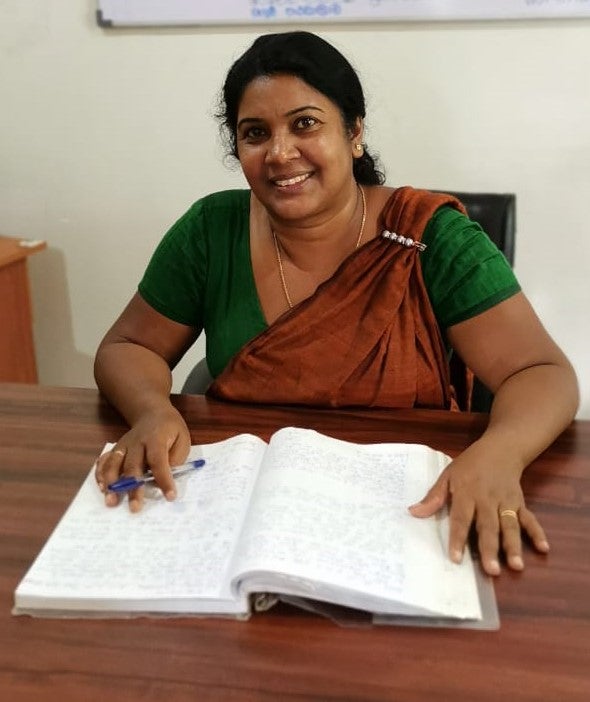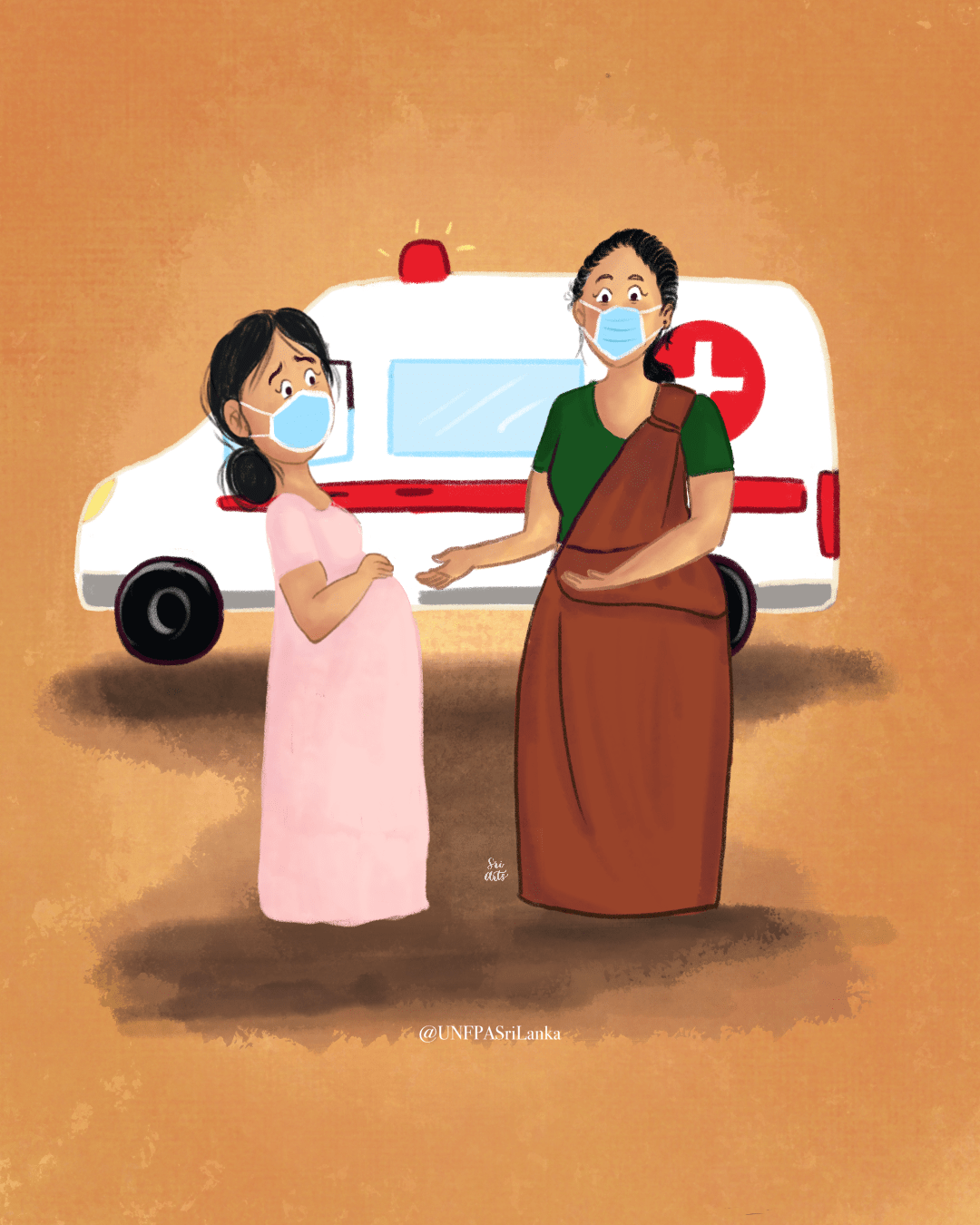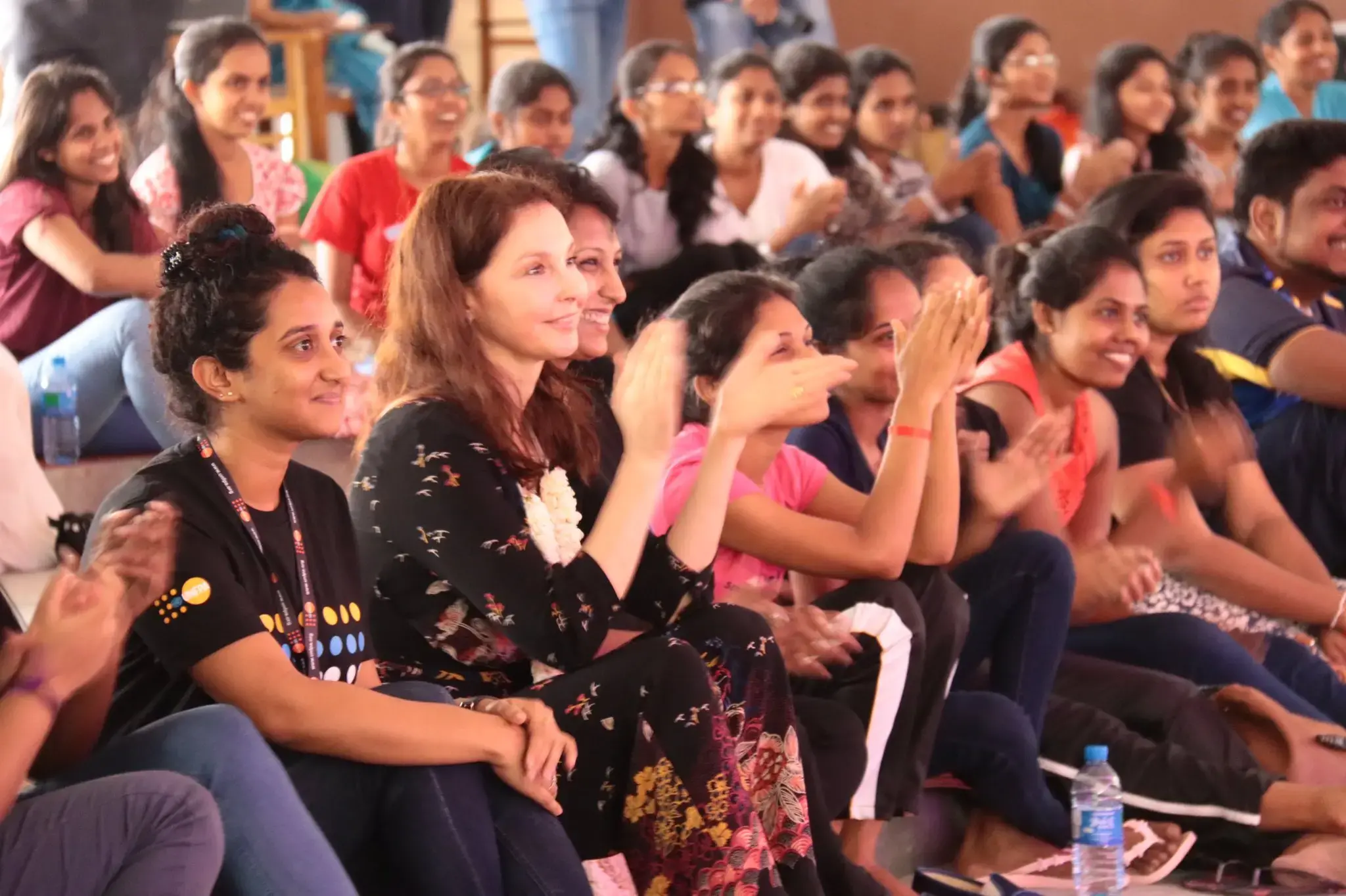This is the story of Janaki Ranasinghe, Programme Officer, Women's Development Centre
The COVID-19 pandemic has seen a rise in the number of calls made by survivors of domestic violence. With lockdown measures in place to curb the spread of the virus, women experiencing domestic violence found themselves confined at home with their perpetrators. With health systems stretched in responding to the crisis, women’s safe shelters were also reaching capacity due to the number of calls made to the helplines.
The Women’s Development Centre (WDC) is one such women’s organization that saw no pause in delivering their essential service during the lockdown, working daily and often, even 24 hours of the day.
Janaki, a mother of two works as a Programme Officer at the Women’s Development Centre in Kandy, where she responded to several calls of survivors.
“WDC faced a unique issue. We had to receive special support to transport pregnant survivors of violence to the hospital through the assistance from the 1990 government ambulance service, which was useful but also particularly distressing as “Once we transported the client, we no longer had access to the transport to return back to the shelter, which put shelter matrons in vulnerable situations especially given the restriction of movement.”
Janaki explained that other than caring for the survivors that the Centre accepted, she also helped many families out of pocket to uplift their economic situation, by providing groceries, medical requirements and to even find a way for the families to get water during the curfew.

“I feel a personal responsibility when I handle cases of gender-based violence as I feel they are like my own children that need to be protected. Often my own children tease me that I spend more time with the victims than with them. However, I know they are proud of me as a mother, and I hope I am an inspiration to them and their friends.”
But with demand increasing, it was difficult to keep up during COVID-19. During these trying times, UNFPA and other agencies came forward to further support WDC. “This support was especially important for us as the WDC saw an influx of women and even toddlers whom we had to house and care for during the lockdown. At one point we had 23 toddlers that needed milk and other supplies.”
As countries race to recover from this pandemic, there is much more that needs to be done to better support these women and girls…“but we must first break the taboo around speaking up and bystander intervention so we can achieve a violence-free Sri Lanka for all!.”
***
UNFPA works with the Government and other key stakeholders to ensure zero unmet need for contraception; zero preventable maternal deaths; and zero gender-based violence and harmful practices in Sri Lanka and the world over.
As we head into a period of 16 days of activism against GBV from 25 November to 10 December, this year we want to draw special focus on the many frontline health workers and service providers like Janaki who strive to create a safer world for all despite COVID-19. Together, let’s take action to shed a light on this shadow pandemic. Let’s also call for action by policymakers across the world to prioritize this issue even amidst the pandemic because the world cannot prosper if a home is not safe for women and girls. This is an important part of our commitment to leaving no one behind.
If you or anyone you know is in need of help, reach out to organisations that can support you. They will treat all information confidentially.
- Women in Need helpline - 0114718585 / 0777349100
- Women's Help Line - Ministry of Women and Child Affairs - 1938





